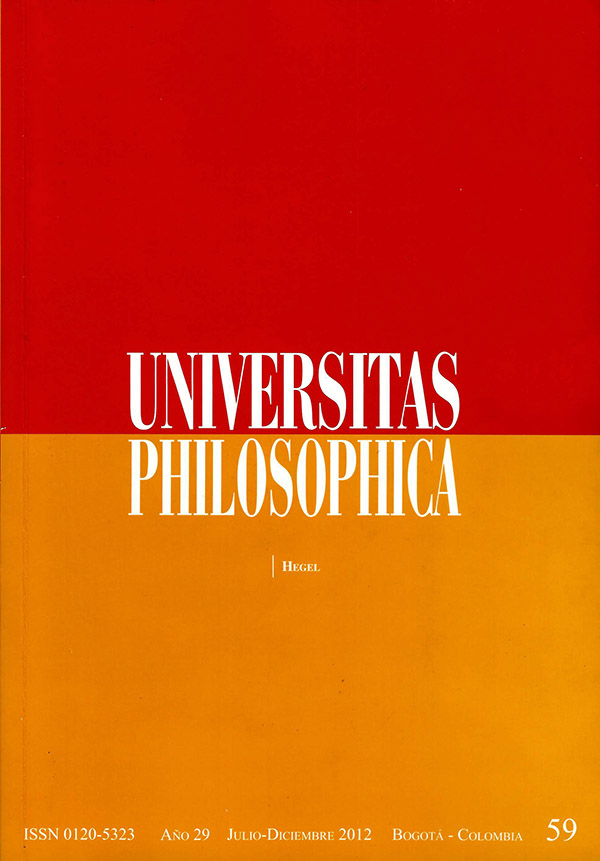Abstract
Hegel’s political philosophy was, as a whole, the political philosophy of German Idealism and as such, critical if not hostile to the idea of democracy. However, despite its more radical theoretical positions against this idea, his concept of “civil society”, as is set forth in The Principles of the Philosophy of Law (1821) can be seen in essence, in his concept, as an attempt to substantiate the conditions under which that society could, in actuality, correspond to the concept of a “modern” society. One of those conditions is found in the recognition experience Hegel understood from the perspective of a full realization of the interests and aims that constitute the particularity of the individual. He/she accesses the sphere of rights and freedoms (freedom in an “external” form) that modern society is required to ensure to all its members.
This journal is registered under a Creative Commons Attribution 4.0 International Public License. Thus, this work may be reproduced, distributed, and publicly shared in digital format, as long as the names of the authors and Pontificia Universidad Javeriana are acknowledged. Others are allowed to quote, adapt, transform, auto-archive, republish, and create based on this material, for any purpose (even commercial ones), provided the authorship is duly acknowledged, a link to the original work is provided, and it is specified if changes have been made. Pontificia Universidad Javeriana does not hold the rights of published works and the authors are solely responsible for the contents of their works; they keep the moral, intellectual, privacy, and publicity rights.
Approving the intervention of the work (review, copy-editing, translation, layout) and the following outreach, are granted through an use license and not through an assignment of rights. This means the journal and Pontificia Universidad Javeriana cannot be held responsible for any ethical malpractice by the authors. As a consequence of the protection granted by the use license, the journal is not required to publish recantations or modify information already published, unless the errata stems from the editorial management process. Publishing contents in this journal does not generate royalties for contributors.


